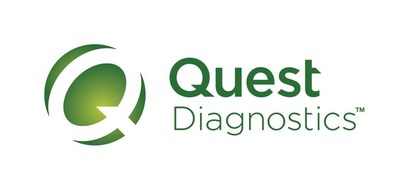Honoring Black History Month with Action

Black History Month is a time to reflect on—and express our collective gratitude for—the contributions and legacy of Black Americans to U.S. history and society. From activists and civil rights leaders, to scientists, artists, business leaders and more, there is an enduring legacy of leadership from the Black community that has forever impacted our collective history for the better. And while we look back and celebrate the accomplishments and contributions of these leaders, we’re also reminded that we have the opportunity—and the responsibility—to create better health outcomes and a better healthcare future for Black Americans.
The 2022 theme for Black History Month is Black Health and Wellness, which aligns perfectly to our Quest for Health Equity (Q4HE) program; a more than $100 million initiative focused on providing a combination of donated testing services, education programs, partnerships, and funding to support initiatives to address health inequities in under-resourced communities. In the year-and-a-half since Q4HE launched, advancing health equity for Black and numerous other historically marginalized communities has been the driving force behind our work to help address and reduce the disproportionate impacts of COVID-19 and other chronic health conditions on Black Americans and show our commitment to serving the needs of these communities.
We launched in 2021 to address COVID-19 in the Black community with our inaugural nonprofit Choose Healthy Life (CHL), a partnership with leading Black Clergy including Revs. Al Sharpton and Calvin O. Butts, and the United Way of New York City. The CHL model was based on an initiative originally established to address the disproportionate and devastating impacts of AIDS on the Black community. Quest Diagnostics is a founding partner and sponsor, providing financial support through the Quest Diagnostics Foundation as well as COVID testing and outreach support to evolve CHL’s proven model to address COVID-19 by bringing testing and resources to underserved Black communities in New York City, Newark, Atlanta, Washington D.C. and Detroit.
We expanded our efforts by building partnerships with a range of nonprofit organizations focused on addressing numerous health issues that disproportionately impact Black Americans. This includes a new partnership with the American Heart Association (AHA) in support of their efforts to advance opportunities for Black and Hispanic students pursuing careers in healthcare (with scholarships for HBCUs and HSIs), and to address heart health issues that have a disproportionate and devastating impact on Black Americans such as hypertension (which currently impacts three out of four Black adults in the U.S., compared to 50 percent of white men and 40 percent of white women). I recently had the opportunity to meet the HBCU students in the AHA Scholars Program at this year’s International Stroke Conference in New Orleans. As a graduate of one of the top ranked HBCUs, North Carolina Agricultural and Technical State University, it is a special honor for me to be able to support these students and help launch their future careers in healthcare.
Maximizing the positive impacts of our partnership with AHA—and with all of our partner organizations—will take more than just our financial support. To help create greater health equity for Black Americans—and for all communities that have been historically marginalized—we will sponsor and support healthcare events, provide resources to help community members assess and address their healthcare needs, empower health-focused education in public schools, and conduct outreach to build awareness and participation from those we seek to help.
Looking ahead, we’ll continue to commit our time, resources and collective intelligence to elevate health equity for Black Americans through Q4HE. While we celebrate our shared history by making it a point to Celebrate Black History this month, I am proud of our year-round commitment to supporting Black communities across the country through Q4HE as we strive to create a more equitable future for all.
– Mandell Jackson, Vice President & General Manager, Quest for Health Equity

